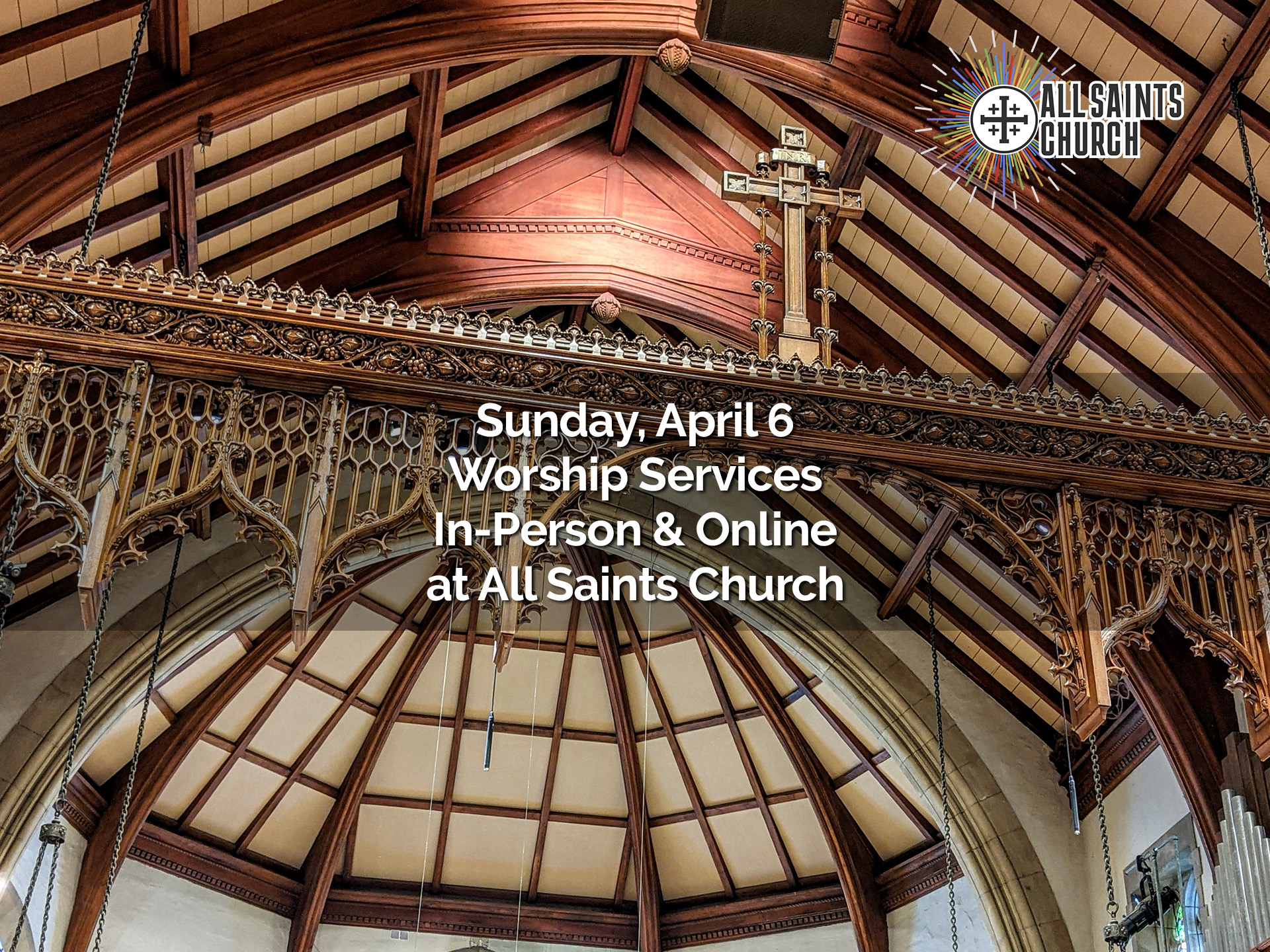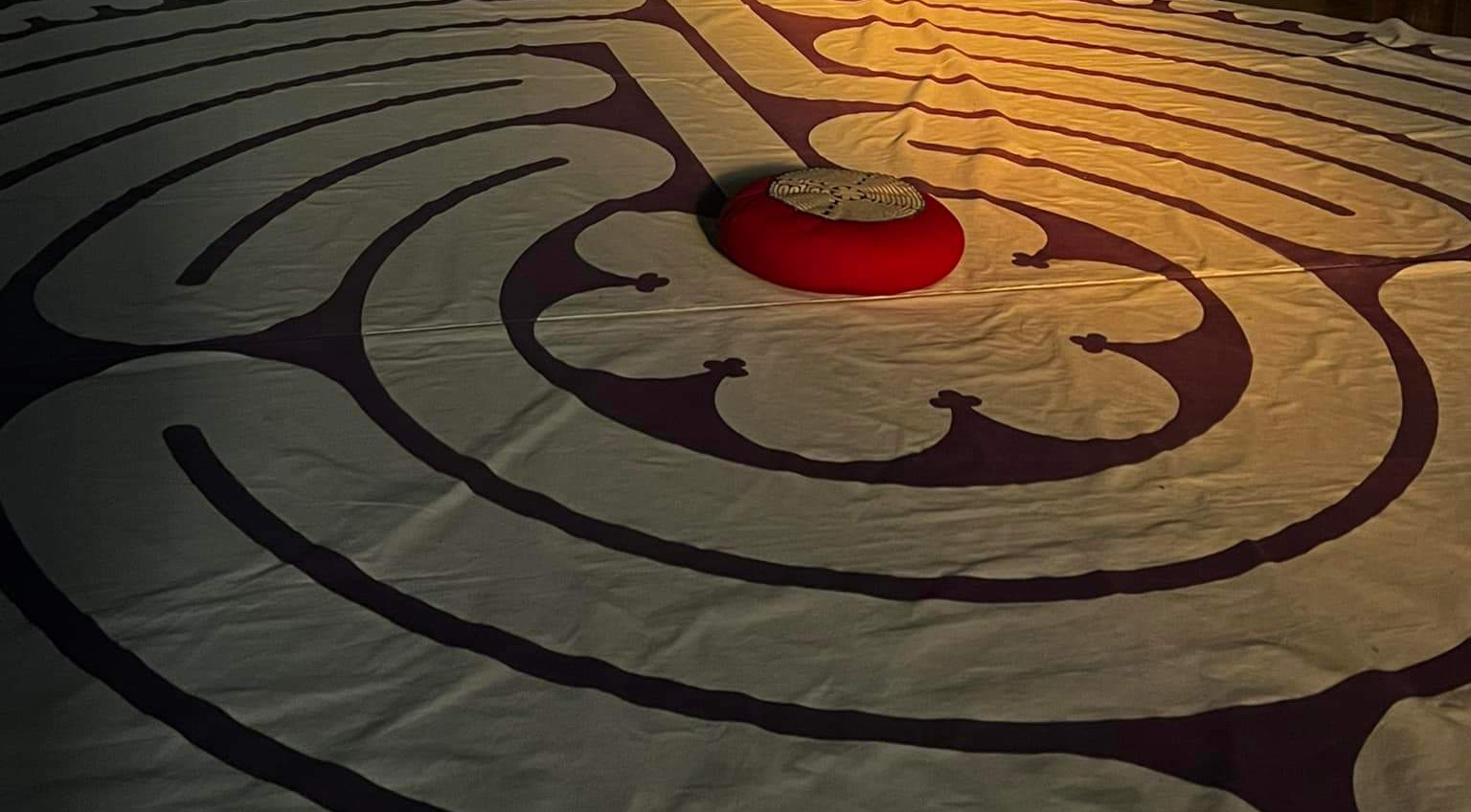A sermon for Sunday, September 30, 2018 [7:30 a.m.] by Mike Kinman, Rector of All Saints Church
“Are you tired? Worn out? Burned out on religion? Come to me. Get away with me and you’ll recover your life. I’ll show you how to take a real rest. Walk with me and work with me – watch how I do it. Learn the unforced rhythms of grace.” [Matthew 11:28-30]
+
Are you tired? Worn out?
After this week, I think we can all say.
Yes.
After this week, I think we can all say that we need some recovery of life. Some real rest.
After this week, I think we all feel the weight of heavy and ill-fitting things on us. Things we have been carrying for some time that have come back with great force this week. Things we may have not been aware of that are now weighing heavy on our souls.
This has been a week of pain that has been reminder of deep pain past, awareness of pain present and has filled us with fear of pain of the future. The testimonies of Dr. Christine Blasey Ford and Judge Brett Kavanaugh, the questionings and responses of the senators and the media storm surrounding all of it have brought incredible pain and trauma to the surface, revealed even more starkly the deep divisions among us, and shown us the ugliest side of how those of us who have power use it against those who do not to achieve our own ends.
We realize that we are wounded.
We realize that we are wounders.
And so, we stumble in here early on a Sunday morning looking to have some meaning made of the mess. Looking for hope. For something that will get us through the week to come. Looking for something that will help us live just a little more freely and lightly.
We come together – as wounded and wounders, and often both wrapped up in one. We come together – as Eugene Peterson says in this beautiful translation of Jesus’ words in Matthew – in hope that we can “learn the unforced rhythms of grace.”
So what does that look like? What does that feel like? What is the hope, the healing? What does it mean for us to recover our lives as wounded and wounders alike?
How can we “learn the unforced rhythms of grace.”
There are no easy answers, but I do believe Jesus gives us some guidance and an incredible amount of hope.
First, for us as wounded.
One of the things most evident about the past couple weeks is the power of three words:
I believe her.
Some have seen those words as a rush to judgment and condemnation without due process. But I believe the power and the necessity of those words comes from a different place.
Our wounds are real. They are painful. They shape our lives. And some of the deepest wounds are the least visible. Some of the deepest wounds are known only to us … and deeper still are wounds that our minds in self-defense have managed to hide even from ourselves.
Alice Walker says “healing begins where the wound was made” – but you have to see where that is. For that healing to happen, we have to see the wound. We have to trust the wound. We have to believe the wound.
Believing the truth of the wound is not about guilt or innocence. This is not about condemnation or retribution. This is about acknowledgment and embrace. This is about love without judgment.
And we struggle with that because we live in a world where we have institutionalized judgment over love. We live in a world that defines justice as punishment instead of reconciliation … that in the name of justice, literally creates more wounds instead of healing the ones that we already have.
We do not claim a wound where one does not exist. If we are feeling the need to claim a wound, I guarantee you, there is a wound somewhere, a wound that needs believing, a wound that needs healing.
And if we start with disbelief. If we approach that wound, if we in our woundedness are approached with dismissal, disbelief and scorn, healing will never, never, ever happen.
When women’s stories of rape, sexual assault and discrimination are not met with belief, when they are met with dismissal, disbelief and scorn, healing can never, never, ever happen.
Jesus says “come to me” and when he does, it is not an invitation to be disbelieved and condemned.
Jesus says “Come to me and recover your life. Come to me and lay down your burden. Come to me and show me your wounds and I will show you mine.”
Jesus says, “Come to me. Tell me your story. I will hear you. I will believe you. I will stand with you.”
That is how we are a community of healing instead of a community of wounding. By starting with those three words: “I believe you.” Not because we want to be judge, jury and executioner of those who wound, but because if we are going to heal we must create a space of safety and trust where God’s healing power can do her work. Because recovering our life is about creating space where it is safe to be wounded and where together and with God’s help, we help each other heal.
“Come to me, all you who are wounded,” Jesus says. “And I will believe you.”
Next, for us as wounders.
Jesus bids us “learn the unforced rhythms of grace.” Those rhythms are wild and expansive and loving and healing. And … the grace is not cheap. The grace is not easy.
Some of the wounds we carry in our souls are the wounds that come from being wounders ourselves. The pain of being a wounder is deep as well, for it eats away at our very humanity. Sometimes we struggle to justify it with blustery vehemence. Sometimes we struggle to hide it in shame, even from ourselves.
The weight of what we have done to each other is not to be compared with the burden of the wounded, but it is a burden nonetheless … and Jesus promises rest not just for some but for all.
“Come to me,” Jesus says to we the wounders. “Recover your life. Walk with me and work with me. Learn the unforced rhythms of grace.”
Just as when we are the wounded there is deep healing power in confessing truth … so with us as wounders. As followers of Jesus, we are inheritors of a tradition of reconciliation from our Jewish ancestors that goes back for millennia. It is as old as the creation myth in Genesis where when, realizing they have wounded their relationship with God, Adam and Eve in the Garden hide in shame and God instead says, “No … come to me.”
When we are wounders, God does not reject us. God says even more passionately “come to me.” And, God bids us come in truth – so the wound of our wounding can be revealed and so healing can happen.
When we have wounded, recovering our lives looks like the sacramental process of reconciliation. And the first steps are self-examination and confession. It is the laying down of the burden of what we have said and done or not said and not done that has wounded others, ourselves or creation. It is deep truth telling that creates the space for healing precisely because the response to those who listen to the truth, the response of God and the beloved community is not condemnation for those who dare to tell the truth, but love.
And … this is not cheap grace. After the truth of the wounding is named, we discern what repentance and reparation look like. How can we not only confess what we have done but repair the damage the best that we can? And it is always the wounded who have the biggest voice in that process. And it is a process we engage not out of a desire for retribution or revenge but out of love and grace, because if we go down the road of retribution and revenge, the pain we have caused will continue to cause cycles of pain and we want to let loose the love and grace that are the only ways to break those cycles.
Then together, with God and the community we look at what recovery of life looks like. How can we as wounders live in new ways that not only stop the wounding but that reveal love in even more powerful ways.
This is the justice that we cry out to God to have run down like waters. This is the healing that stops the cycles of wounding. This is how we break free from the condemnations and the punishments. This is how we lay down the heaviness of wounded and wounder and learn to live freely and lightly.
The Sufi poet Rumi wrote:
Out beyond ideas of wrongdoing and rightdoing,
There is a field. I’ll meet you there.
That is our dream and our destiny. Not a place where the wounded are shamed or where the perpetrators “get what’s coming to them.” But where the question we ask of all is what does love look like? What does healing look like?
Are you tired?
Are you worn out?
I am, too.
I am tired of living in this world of retribution and shame.
I am tired of living in this world where wounds are not believed and wounders are denied grace.
I am tired. I am worn out. And I think you are, too.
And so together, with God’s help, let’s meet in Rumi’s field and create a new world.
A world where wounds are believed.
A world where wounders are held accountable by being led into the justice of reconciliation and healing.
A world where we keep company with God and with each other, where we learn to live freely and lightly.
Where we learn the unforced rhythms of grace.
Amen.



